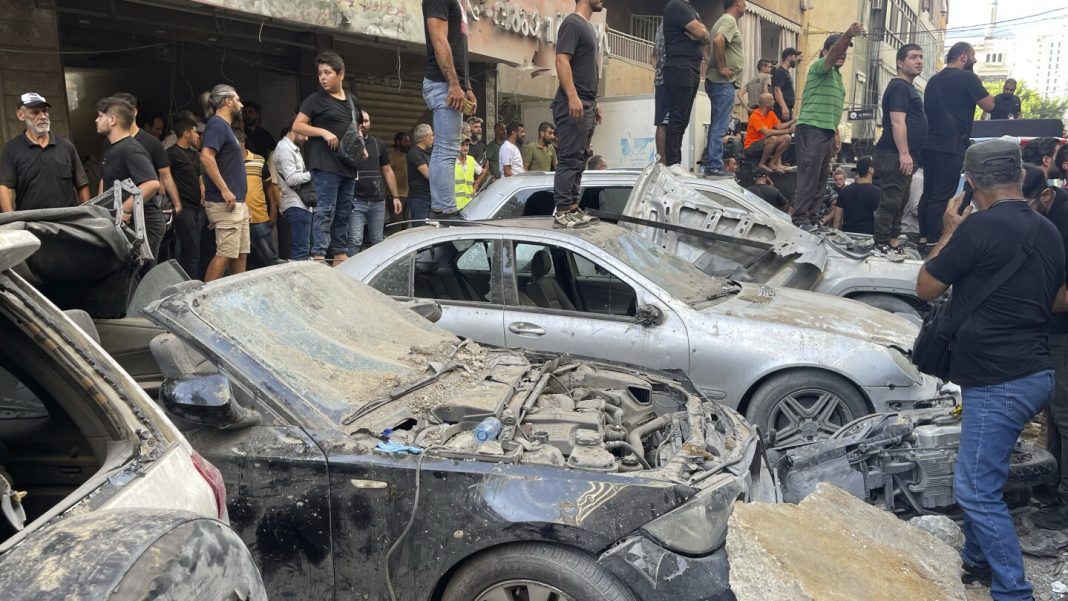BEIRUT (news agencies) — An Israeli strike on Beirut on Friday killed at least three people and wounded more than a dozen others, Lebanese health officials said, the first Israeli attack on the Lebanese capital in months that came after Hezbollah pounded northern Israel with rockets.
Israel announced the strike, but didn’t immediately specify the target in Beirut’s crowded southern suburbs, where Lebanon’s Hezbollah militant group holds sway.
Lebanon’s Health Ministry reported that at least three people were killed and 17 others wounded as local networks broadcast footage of wounded people being pulled from the ruins of a flattened building and ambulances rushing to the scene of the strike.
The strike in Dahiyeh, just kilometers from downtown Beirut, hit during rush hour, as people were leaving work and students headed home from school.
The escalation came as the region awaited the revenge promised by the militant group’s leader, Hassan Nasrallah, for this week’s mass bombing attack on pagers and walkie-talkies belonging to Hezbollah members.
Israel’s rare strike on the Beirut suburbs came after Hezbollah pounded Israel with 140 rockets, which the Israeli military said came in three waves targeting sites along the ravaged border with Lebanon.
Following the attacks, the Israeli military said that it had struck areas across southern Lebanon targeting Hezbollah infrastructure, but didn’t provide details of damage.
Hezbollah said that its attacks had targeted several sites along the border with Katyusha rockets, including multiple air defense bases as well as the headquarters of an Israeli armored brigade they said they’d struck for the first time.
The Israeli military said that 120 missiles were launched at areas of the Golan Heights, Safed and the Upper Galilee, some of which were intercepted. Fire crews were working to extinguish blazes caused by pieces of debris that fell to the ground in several areas, the military said.
The military didn’t say whether any missiles had hit targets or caused any casualties.
Another 20 missiles were shot at the areas of Meron and Netua, and most fell in open areas, the military said, adding that no injuries were reported.
Hezbollah said that the rockets were in retaliation for Israeli strikes on villages and homes in southern Lebanon, not two days of attacks widely blamed on Israel that set off explosives in thousands of Hezbollah pagers and walkie-talkies.
On Thursday, Israel said its military had struck “hundreds of rocket launcher barrels” in southern Lebanon, saying that they “were ready to be used in the immediate future to fire toward Israeli territory.”
The army also ordered residents in parts of the Golan Heights and northern Israel to avoid public gatherings, minimize movements and stay close to shelters in anticipation of the rocket fire that eventually came Friday.
Hezbollah and Israel have exchanged near-daily fire since Oct. 8, a day after the Israel-Hamas war’s opening salvo, but Friday’s rocket barrages were heavier than normal.
Nasrallah on Thursday vowed to keep up daily strikes on Israel despite this week’s deadly sabotage of its members’ communication devices, which he described as a “severe blow.”



